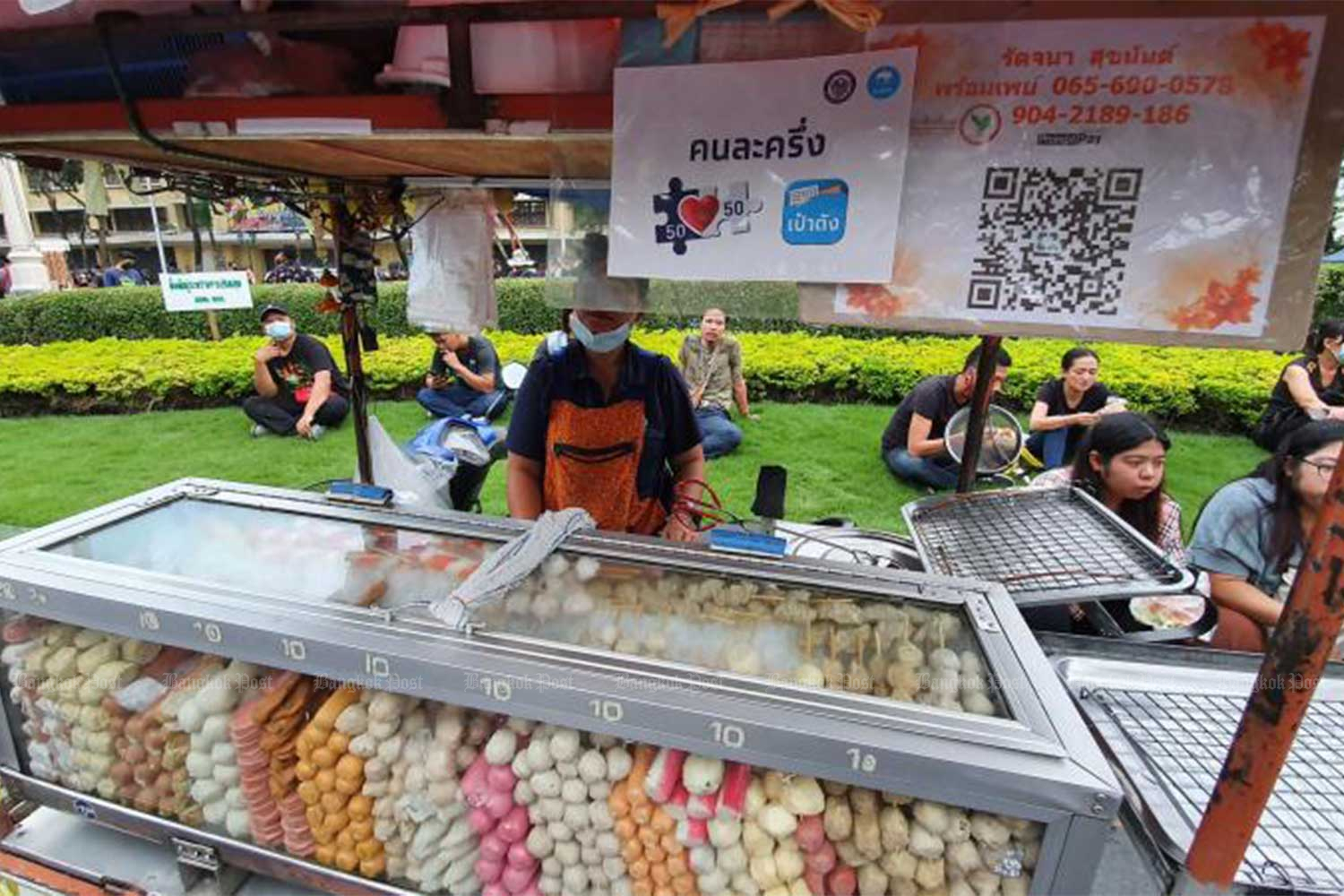
The government’s “Khon La Khrueng” (Let’s Go Halves) co-payment stimulus programme has generated consumer spending of 13.76 billion baht in its first three weeks, officials said on Friday.
More than 650,000 small merchants have participated in the co-payment scheme and 7.83 million people have applied for the subsidies offered, according to the Ministry of Finance News Station Facebook page.
Of the 13.76 billion baht in total spending, 7.01 billion was spent by registered consumers, while the government paid out 6.75 billion. Average daily spending was 207 baht per transaction.
The five top provinces for spending were Bangkok, Songkhla, Nakhon Si Thammarat, Surat Thani and Chiang Mai.
The Finance Ministry and state-owned Krungthai Bank have jointly set up a new system to transfer money to shops participating in the co-payment scheme every day, including weekends, starting from Saturday. Vendors will receive money every day after purhcases are made at their shops, said Pornchai Theeravej, an adviser to the Fiscal Policy Office and deputy spokesman for the ministry.
The co-payment programme allows registered individuals who make purchases at small shops to pay only half the price, with the government subsidising the rest.
The government pays 50% of food, drink and general goods purchases up to 150 baht per person per day, with the total subsidy capped at 3,000 baht per person for the duration of the programme.
The scheme started on Oct 23 and will end on Dec 31.
The objective is to stimulate consumer spending in the final quarter as the country continues to recover from the severe economic damage done by the Covid-19 pandemic.